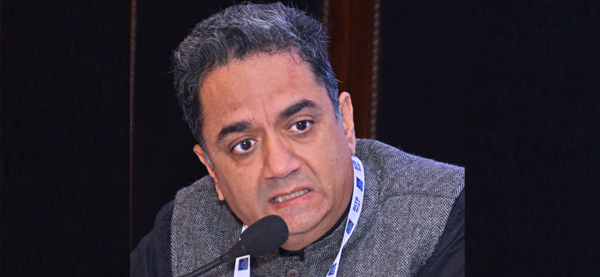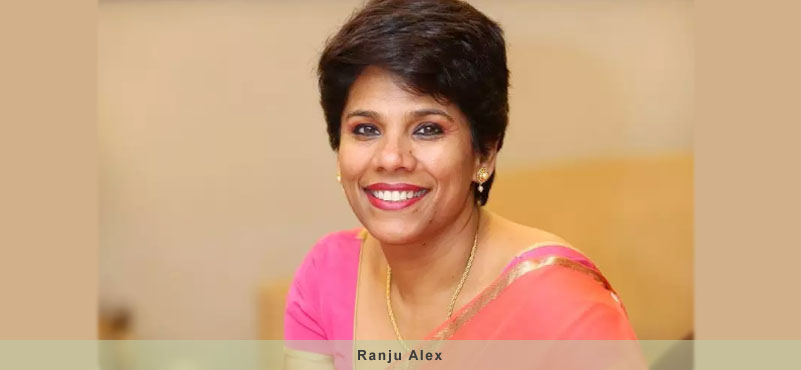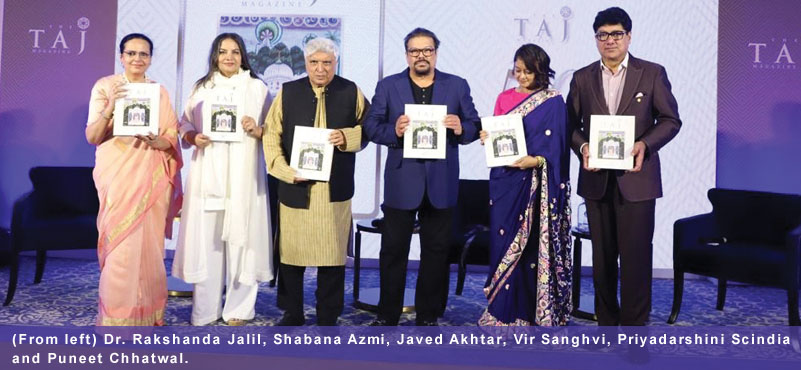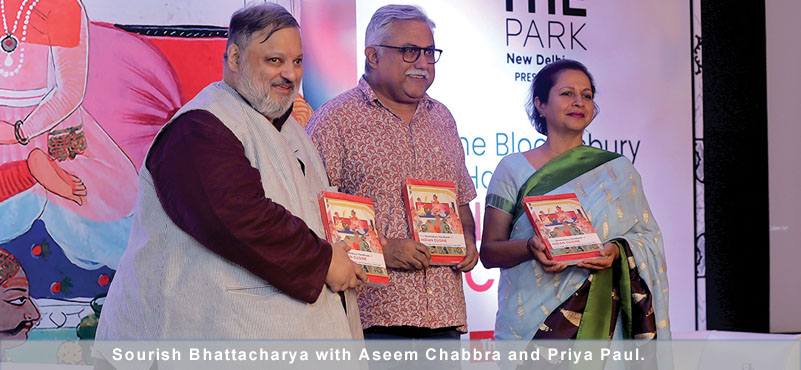Manav Thadani, Chairman, HVS-Asia Pacific believes that the blip in real estate prices will have a positive impact on the supply side in the coming years. Sharing his view on the growing trend of mergers and acquisitions, he notes that much of it is being driven by the need for streamlining operations and ensuring financial prudence. Excerpts of his exclusive interview follows:

CHAIRMAN, HVS-ASIA PACIFIC
Since the last HICSA in 2016, what has been the change in the picture? How much has the industry moved?
A lot has happened in the past twelve months. There have been a fair number of mergers and acquisitions between different companies. The Marriott, of course, acquired Starwood; Carlson got acquired by a Chinese company; closer home, Louvre Hotels acquired Sarovar. So, a lot of mergers and combination of doing certain things together – Taj and Shangri La has teamed up for a marketing alliance.
Interestingly, I may not able to track what has happened in the last one year. Bu this is HVS’s twentieth year in India, and therefore I did an exercise to see how things have changed in the last twenty years. We got some very interesting data. A lot of expenses have gone up. Forget about NHG and payroll costs, I will give you examples of other expenses that did not exist twenty years ago, which today’s owners have to pay for. Internet cost, for instance, did not exist. And, then you have brand standard of certain internet brands which says that you are supposed to have a certain minimum bandwidth. Whether it gets utilised or not, as an owner you are forced to pay for it. Then there are costs associated with security. We did not have any security in hotels twenty years ago. So, whether it is the manpower cost, or the technology cost, it has gone up significantly.
There were no OTAs twenty years ago. Therefore, when one negotiated a contract with the management company, you paid for a base fee, an incentive fee, and marketing fee and you thought that the hotel or the brand will then take care of everything else. Today, you pay for that, and on top of it the hotel will take out 15-22%, and pay to OTA, for something that they should have been doing. So, what I am trying to get to is that the profitability of running a hotel has gone down – and the brand company, as a brand, is not necessarily doing the job they are supposed to be doing. Expenses have gone up tremendously which is why we see a lot, I would not say disenchantment, but owners are upset and perhaps, rightly so.
Real estate prices have taken a beating post demonetization. How do you see it impacting the hospitality industry, given that the hospitality industry is intrinsically linked to how the real estate moves?
Well, I think if there is a correction in the real estate prices it is good for the industry. Land valuation in India is much higher than what they are in many other parts of the world. So, if this correction has happened, it is good for us, good for the industry. It will encourage more potential supply to come up, and India will need more hotels in the long-term. There is hardly any new supply coming in. Markets are improving, so supply will come in for an industry to remain healthy. So, from that point of view, I am quite happy that there has been a correction in the market.
So, do you think it is a temporary phenomenon, or will it be here for some time?
No, I hope it is more permanent. I mean look at the cost of a house you buy in Gurgaon and you compare that to the cost of an apartment in any other part of the world, do you think we get world-class infrastructure? We do not. You go to Mumbai. Instead of sea view, you get a slum view. You come to Gurgaon, instead of seeing greenery, you see dust bowls all over the place. So, why are we paying so much? It makes great headlines to say that real estate has been sold at a certain price, but it is actually bad for the economy.
We have government’s policy saying ‘Make in India’, Invest in India, and others, yet we are one of the most of the most expensive places for some of the basic raw material that we have.
You initially talked about mergers and acquisitions. Do you think that this phenomenon is being driven by the fact that a number of hotels are under stress and are finding it difficult to operate in the current milieu?
No. The three examples which I gave you initially, none of the three were under any kind of stress to be taken over. It is happening because as Arne Sorenson of Marriott said that when you consolidate, you can then negotiate better with the OTAs. As the CEO of Marriott said, we would have 200 million dollars of savings by just combining things. The development teams have been combined; a lot of things have been combined. Imagine, if you could reduce 8-10 employees at the corporate level in India. Now, imagine doing that in every country. You can suddenly reduce 800-100 people across the board. It is basically streamlining of operations.
How can the relationship between the owner and the operator be improved? You have mentioned that owners are angry, at least some of them. What is the way forward? How can this conundrum be addressed?
Unfortunately, we are heading in the way, in the USA which is a more mature market, there are third-party operators. They are specialised operators and they do a very good job of operating hotel assets. Brands in the USA do not operate hotels because they do not do a good job of it. They used to do this in India, and they used to do this in Asia, and in many other parts of the developing world, because they make good money off of it. I think, if they do not improve the way they are offering services they are offering to owners, there will be a time when the owners either take upon themselves to operate these hotels, or hopefully someone who will come along and open a third-party management company that will do quite well. I think it is an opportunity for someone to come in and step into.
What is your sense of 2017? How will it pan out for the hospitality industry? GST might just be rolled out.
There was a blip initially, but March has been decent for the hospitality industry. Overall, we are pretty optimistic about the current year for the India perspective.
And what would you base this assertion on?
Well, because India is not too dependent on what happens around the globe. Domestic consumption is strong; the government has recently won assembly elections, meaning reforms will carry on. People will still continue to come to India; business travel will be up. All the indications, if you look at it, airline traffic is up. Record levels have been reached in, I think, January and February. More people are travelling, therefore more people will stay in hotels. I am very optimistic from that point of view. I think there will be a growth; RevPARs might even touch low double-digits, in terms of increases for the current year, in many other cities.
You have asserted on many occasions that the growth in the hospitality industry will be driven by the mid-segment. We understand that rising disposable incomes and increase in online penetration is driving this. But where do we stand in that segment and what is the future like?
I have always, historically, said that budget and mid-segment market will be the main drivers of the business. There is a slight change in my thinking. One thought is that the lines between the budget and mid-market, and the upper mid-market, are all blurring. There is not that much product differentiation between a budget hotel and a mid-market hotel. For example, a Fairfield Marriott and a Courtyard Marriott and the Hyatt place, you talk to all different brands and they will give you their explanation of where they are positioned. Whereas there may not be that much difference between them. I still feel that, overall, that segment will continue to do well, and will be the drivers. In the luxury space, what I am finding out, and I did an article last year – we looked at data points, saying that let us look at the top 25 hotels in India by room rate. From highest to the bottom. 23 out of those 25 hotels were leisure hotels, and it was quite amazing for us. We had never looked at it like that, it was a pure coincidence.
So, when you talk about luxury to me today, I say if you want to build luxury hotels, if you can find a nice location for leisure, go luxury. Because the Indian traveller today is willing to spend money and travel, and rather going overseas which could take more time, they would prefer travelling within the country.
So, it is all good in the coming years as well?
I hope so. Certainly, for the next 2-3 years, there seems to be stability of the government; people are now beginning to talk about five more years for PM Modi. If that happens, the hotel industry should clearly benefit from that.
While there is still some uncertainty as to where the GST will be pegged, we will know how it might affect us, but if it is priced at 18%, what people are generally talking about, I think it will be good for the industry.




































